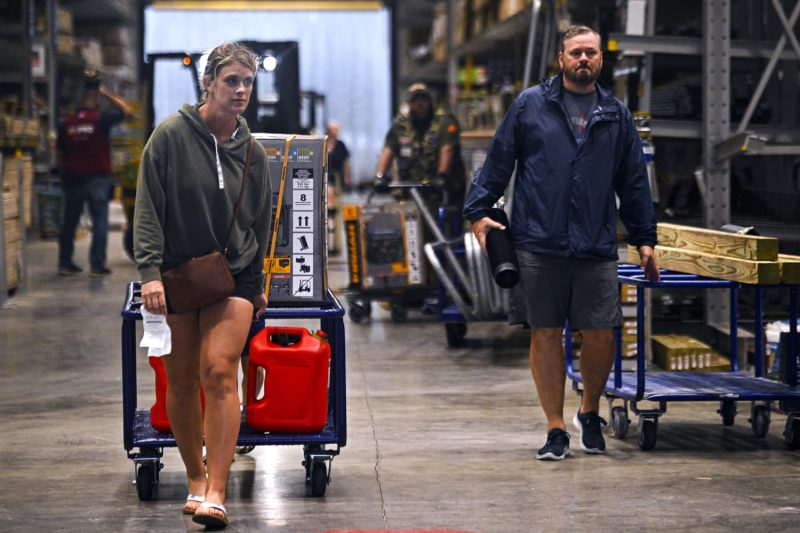The recent warning issued jointly by the Department of Justice (DOJ) and the Federal Trade Commission (FTC) regarding the potential risks of fraud and price gouging ahead of Hurricane Milton highlights the importance of vigilance and consumer awareness during times of natural disasters. This alert serves as a timely reminder of the various scams and deceptive practices that can emerge during such crises, with the goal of protecting consumers from falling victim to exploitation.
The warning specifically cautions individuals to be wary of fraudulent schemes and malicious actors who may seek to take advantage of the chaos and vulnerability caused by hurricanes. Such scammers often exploit people’s urgent needs for essential supplies, services, and accommodations by offering false promises or charging exorbitant prices for goods and services. In response, the DOJ and FTC have urged consumers to exercise caution and be proactive in verifying the legitimacy of businesses and individuals they engage with during the hurricane season.
Price gouging, a common phenomenon during emergencies, is highlighted as a key concern in the warning. Price gouging refers to the practice of significantly increasing the prices of goods and services beyond what is considered reasonable or fair, often to capitalize on the increased demand and limited supply resulting from disasters. The DOJ and FTC emphasize that price gouging is illegal and unethical, and they encourage consumers to report any instances of suspected price gouging to the relevant authorities for investigation and possible enforcement action.
Another aspect highlighted in the warning is the prevalence of charity scams during crisis situations. Fraudulent individuals may pose as fake charities or fundraisers, soliciting donations from well-meaning individuals under the guise of providing relief to the affected communities. To avoid falling victim to such scams, the public is advised to exercise due diligence when donating money or resources, such as verifying the legitimacy of charities and avoiding unsolicited solicitations.
In addition to highlighting the risks and potential scams associated with disasters like Hurricane Milton, the DOJ and FTC also provide valuable tips and resources for consumers to protect themselves. These include researching businesses before making purchases, being cautious of unsolicited offers or requests for personal information, and reporting suspicious activities to the appropriate authorities.
Ultimately, the joint warning issued by the DOJ and FTC aims to empower consumers with the information and awareness needed to make informed decisions and safeguard themselves against fraud and exploitation during times of crisis. By staying vigilant, exercising caution, and being proactive in reporting suspicious activities, individuals can help combat fraudulent practices and protect both themselves and their communities from harm.
